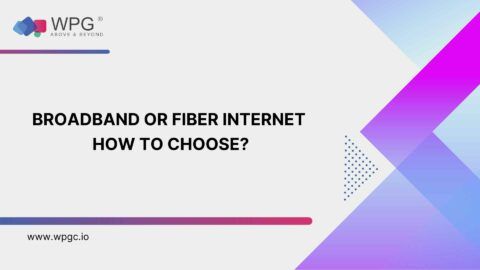The internet keeps small companies competitive and large enterprises profitable. But downtime costs businesses over $100,000 annually. As needs grow, is basic broadband still enough? Or should businesses upgrade to blazing, reliable fiber networks? This guide examines the pros and cons of both technologies to help companies select the best business internet option.
Table of Contents
Broadband Internet Overview
Broadband internet provides web access by transmitting data over phone lines or cable networks. Download speeds start around 25 Mbps for basic plans, while premium packages deliver up to 100 Mbps. Broadband networks leverage older infrastructure keeping costs affordable for many small businesses.
Broadband Pros
- Wide availability utilizing existing phone/cable infrastructure
- Lower monthly costs more suitable for smaller budgets
- Symmetric speeds enabling moderate uploads and downloads
Broadband Cons
- Peak speeds still lag cutting edge fiber networks
- Congested networks drive higher latency and lag
- Less consistent performance as area demand fluctuates
- Upload and download speeds typically capped based on plan
Fiber Optic Internet Explained
Fiber internet transmits data via light pulses through flexible glass fibers. This state-of-the-art medium delivers exponentially faster, more reliable connections. Download/upload speeds easily exceed 1 Gbps. While fiber availability still trails older networks, aggressive expansion initiatives aim to extend access.
Fiber Internet Pros
- Both upload and download speeds are lightning fast.
- Virtually unlimited scalability to handle growth
- Ultra low latency for smooth video conferences and voice calls
- Gold standard for consistent reliability and uptime
Fiber Cons
- Higher monthly costs, though the price gap is narrowing
- Installation logistics requiring trenching fiber lines
- Availability still trails cable/phone broadband networks
Key Factors When Comparing Broadband vs Fiber
Important considerations businesses must weigh include:
Performance Needs
Will basic browsing and cloud apps suffice? Or is transferring gigantic files common place? Assess speed and latency demands across locations.
Growth Trajectory
Consider long-term requirements. While current needs allow for basic broadband, rapidly accelerating demands from new initiatives could require ultra fast, low-latency fiber.
Location Limitations
Fiber and even cable broadband access varies greatly by area. Research available options for target expansion sites. Can emerging low-earth orbit satellite fill gaps?
Compliance Factors
For finance, healthcare and other highly regulated sectors, the security and audit control compliance fiber facilitates may prove mandatory.
When Broadband Internet Delivers
For many small businesses focused locally or with limited online elements like service firms, broadband should suffice:
- Professional services firms, contractors, creative agencies
- Main street retailers with basic POS and inventory needs
- Single location restaurants fulfilling online orders and payments
- Newer startups not yet experiencing rapid expansion
Rural locations or satellite offices also remain reliant on phone/cable due to regional limitations in fiber availability. While speeds lag, reliability is often on par.
Scenarios Requiring Fiber
Once steady growth kicks into high gear, fiber becomes non-negotiable:
- Data intense enterprises rapidly expanding storage volumes
- Organizations transferring large multimedia files daily
- Finance and healthcare sectors requiring rock solid uptime
- Distributed companies connecting thousands of endpoints
- Call centers managing high volumes of concurrent chats/calls
- Any business where slowdowns directly impact revenue
For these scenarios, fiber provides the capacity buffer and future-ready scalability essential to avoid debilitating slow internet speeds as needs multiply.
Conclusion
- For modest internet needs, broadband often still fits the bill providing “good enough” speeds at affordable monthly pricing.
- But fiber no longer means an astronomical price tag. As availability quickly expands, fiber connections now start around $250 monthly delivering game-changing reliability, capacity and low latency.
- Consider current needs, but also allow room to scale without drastic upgrades down the road. Fiber buys long-term upside as companies expand while ensuring internet speeds never bottleneck business growth.
Evaluating location specifics, long-term requirements, costs, compliance needs and more determines the best network infrastructure for unique business objectives. While still trailing on availability, fiber’s enterprise adoption trajectory points to it rapidly overtaking dated networks as the new standard for business internet connectivity enabling the technologies of tomorrow.
FAQs
Unlikely. While network enhancements may deliver marginal speed bumps, extensive cable infrastructure upgrades would be required to match fiber networks – an unlikely investment given aggressive fiber expansion.
Sites like fiber.google.com provide availability maps showing major fiber internet providers servicing businesses across neighborhoods. Typing your address will indicate available enterprise options.
While premium business broadband packages tout exceptional reliability, fiber remains the undisputed gold standard for minimizing disruptive downtown driving revenue and productivity losses.
Yes. The security, transparency, and audit controls fiber internet enables can facilitate regulatory compliance. This makes fiber networks mandatory for industries like healthcare and finance.

